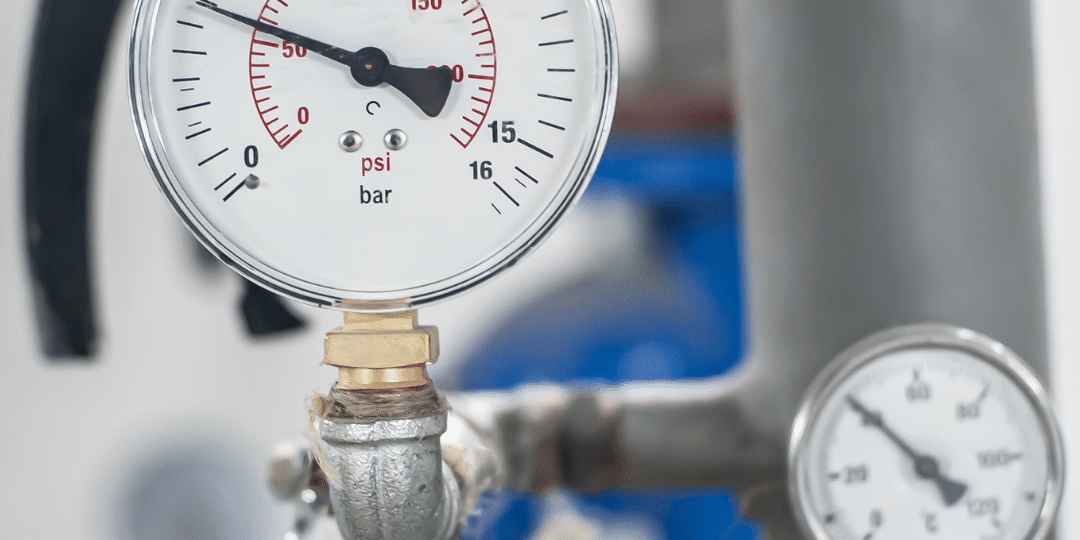If you’re a homeowner in Lakewood or Denver, CO, you’ve probably never given much thought to your home’s water pressure—until something goes wrong. From sudden pipe leaks to appliance breakdowns, unchecked water pressure is a hidden culprit behind many plumbing issues. One of the simplest ways to prevent these problems is by installing a pressure regulator valve (PRV).
In this blog, we’ll explore why a pressure regulator valve is essential in Colorado homes, how to know if you need one, and what steps to take to protect your plumbing system.
Why Water Pressure Matters in Colorado?
Due to the high elevation and fluctuating water supply systems in areas like Denver and Lakewood, it’s not uncommon for homes to experience water pressure well above 80 psi. While that might sound like a benefit (strong showers, anyone?), the truth is that excessive water pressure causes long-term damage to pipes, appliances, and fixtures.
According to plumbing code, if your pressure exceeds 80 psi, a pressure reducing valve is required. Even if your readings are slightly below that threshold, inconsistent or elevated pressure is reason enough to consider a PRV.
What Can Happen Without a Pressure Regulator Valve?
Unchecked water pressure can lead to a range of costly and inconvenient problems:
- Leaking Pipes or Fittings
High pressure strains joints and connections, often leading to leaks behind walls or under floors.
- Water Hammer (Banging Pipes)
That loud “thud” when you turn off a tap is more than a nuisance—it’s a warning sign of excess pressure.
- Appliance Damage
Your dishwasher, washing machine, and water heater weren’t designed to handle excessive force. PRVs can extend the life of your appliances.
- Higher Utility Bills
Without regulation, your home uses more water than necessary, driving up your monthly costs.
Signs You May Need a Pressure Regulator Valve
If you’re wondering whether your home could benefit from a PRV, look for these signs:
- Fluctuating or consistently high water pressure
- Appliances failing sooner than expected
- Loud pipes or banging sounds when turning off water
- Frequent faucet leaks or dripping toilets
- Spraying water from fixtures that feel too forceful
You can also use a simple water pressure gauge (available at most hardware stores) to measure your system. Attach it to an outdoor hose bib or washing machine connection to get an accurate psi reading. If it’s above 80 psi, it’s time to act.
Benefits of Installing a Pressure Regulator Valve
A professionally installed PRV provides both immediate and long-term benefits:
- Protects your entire plumbing system from damage and leaks
- Reduces the risk of water hammer and pressure-related noise
- Improves energy and water efficiency by preventing overuse
- Lowers the chance of emergency plumbing repairs
- Extends the life of your appliances, fixtures, and water heater
Lakewood & Denver: Why It Matters Locally
Colorado’s climate brings unique plumbing challenges, especially with freeze-thaw cycles, elevation-related water pressure changes, and aging infrastructure. Homes in Lakewood and Denver are particularly vulnerable to pressure fluctuations due to their location and elevation. Installing a pressure regulator valve isn’t just a luxury—it’s a necessary safeguard for your plumbing system.
Trust Defense Plumbing for Pressure Regulator Valve Installation
At Defense Plumbing, we specialize in pressure regulator valve installation in Lakewood and Denver, CO, along with inspection, repair, and replacement services. Whether you’re dealing with visible symptoms or just want peace of mind, our certified plumbers are equipped with the latest tools and training to deliver accurate diagnosis and reliable solutions.
We’ll evaluate your system, test your water pressure, and provide honest recommendations tailored to your home’s needs. Every job comes with transparent pricing and guaranteed workmanship.
FAQs About Pressure Regulator Valves
Q – What is a pressure regulator valve, and what does it do?
A – A pressure regulator valve (PRV) reduces and stabilizes the water pressure entering your home. It helps prevent leaks, fixture damage, and appliance wear caused by excess water pressure.
Q – How do I know if I already have a pressure regulator valve installed?
A – Look for a bell-shaped valve near your main water shut-off point, usually where the water line enters your home. If you’re unsure, a plumber can confirm its presence and condition.
Q – How often should a pressure regulator be replaced?
A – Most PRVs last between 7–12 years. If you notice pressure issues or irregularities, it may be time for inspection or replacement.
Q – Can I install a pressure regulator myself?
A – PRV installation often requires pipe cutting, soldering, and pressure calibration. For safety and code compliance, it’s best to leave the job to a licensed plumber.
Q – Does high water pressure affect my utility bill?
A – Yes, higher water pressure means more water flows through your fixtures, increasing your water usage—and your bill—over time.
Schedule Your Pressure Regulator Valve Installation in Lakewood or Denver
If you’re experiencing water pressure problems or want to avoid costly plumbing issues down the road, Defense Plumbing is here to help. Our team is ready to inspect your system and provide professional pressure regulator valve installation that protects your home and your wallet.
Call us today or request a free estimate to safeguard your home’s plumbing.


